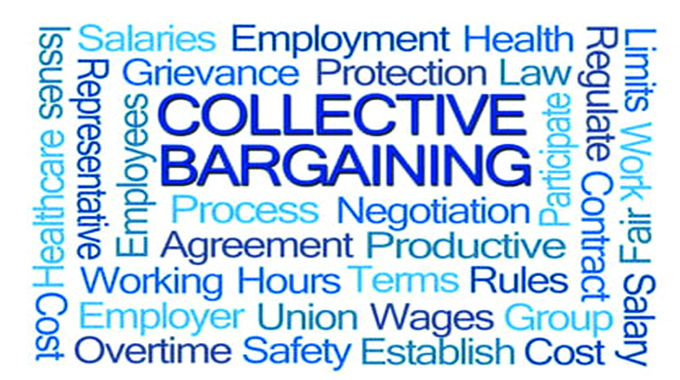What direction should collective bargaining take?

Labour Matters, Davies Ndumiso Sibanda
WITH many workers now earning salaries and wages whose value is falling rapidly many employers struggling to keep business afloat, the problem of how to compensate workers has arisen.
The position where our economy is in now dwarfs the labour legislation as far as wages and salaries management is concerned. We have now entered unclear waters where both union and employers have to be creative to save jobs and keep businesses afloat.
Most NECs that negotiated wages for 2019 at the beginning of the year have had to go back to the negotiating table to negotiate wage reviews as the purchasing power of previously agreed wages has collapsed.
Today a hundred US dollars on the parallel market is equivalent to plus or minus RTGS$900 in the parallel illegal market where most citizens are able to find foreign currency and at the same time the average worker earns between RTGS$250 and RTGS$500 meaning that in US dollar terms some workers earn as little as US$25 with farm workers, domestic workers and flea market employees earning an equivalent of US $10.
Where an individual takes a combination of diabetes and high blood pressure medication the drugs bill hovers around RTGS$700 per month and many on medical aid have exhausted their drug allocations and are struggling to get medication.
The picture is similar with other workers with chronic ailments.
The price of basic foodstuffs, transport, accommodation and uniforms for children, have also risen steeply, with some property owners demanding rentals in US dollars.
Shops have not been spared as most landlords now demand rentals in US dollars a thing that is likely to drive many out of towns or could cause overcrowding as people group together to share accommodation.
Businesses are struggling to access inputs as those that require foreign currency are struggling to get it.
Electricity outages have also increased downtime while fixed business costs continue to rise leaving many businesses on their knees.
The above given position is the environment under which collective bargaining is taking place.
Workers are going back to employers admitting that while there are valid wage agreements running up to December 2019 the situation on the ground has shifted requiring special attention.
Employers are agreeing with workers but the challenge is how much can ailing businesses give and remain standing.
A major question that has come up in the last days has been should negotiations be based on salary or be based on a grocery basket or a mixture of both?
Further, with accommodation quickly being dollarised and other key needs such as medicine and school fees also dollarising, parties are in a dilemma as to how the negotiations should go.
Some have suggested that there should be dual negotiations at NEC for global issues and specific issues be dealt with at works council level.
The challenge with this approach, however, is that very few works councils are tooled to adequately handle complex wage negotiations as both mangers and worker representatives are not adequately trained.
In conclusion, we are all in a learning curve, NECs should closely follow the economic movements and take a route that will keep workers alive and businesses afloat and remain positive that things will get better.








Comments